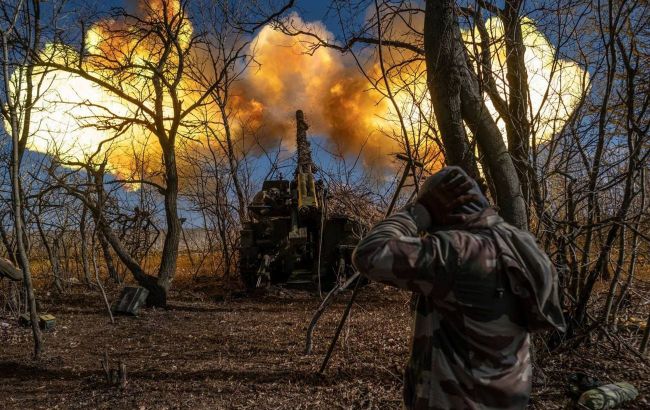War in Ukraine may last longer: IMF updated negative scenario
 Photo: The war could last longer, the IMF believes (Getty Images)
Photo: The war could last longer, the IMF believes (Getty Images)
Experts from the International Monetary Fund have updated the negative scenario for Ukraine in the event of a more intense war. In this case, the economy will decline in 2025 and 2026, according to the IMF Memorandum.
The scenario envisions that the war will last until mid-2026, with the shock of worsening conditions beginning in the second quarter of 2025.
"This shock would weigh strongly on firm and household sentiment and the pace of migrant return and would entail further large-scale energy infrastructure damage and power outages relative to the baseline," the Memorandum states.
The revised scenario projects a decline in real GDP by 2% in 2025 and by 0.5% in 2026. In the post-war period, even fewer refugees will return compared to the baseline scenario, slowing growth in 2027 to 3.8%.
_2.png)
The total financing deficit in the negative scenario is estimated at $162.9 billion, which is $14.1 billion higher than the baseline forecast of $148.8 billion. This amount covers the entire duration of the IMF program (Q2 2023 – Q1 2027).
A reduction in external economic and military support could further weaken an already difficult security situation, leading to weaker economic performance and open financing gaps, the document states.
"Reform fatigue and challenges to political consensus are vulnerabilities regardless of the evolution of the war," the IMF notes.
The negative scenario assumes that imbalances in the foreign exchange market will reappear and persist for a longer period due to weaker export performance.
Possible response from Ukrainian authorities
According to the IMF, since the beginning of the war, the authorities have taken decisive measures to respond to shocks as they arise, carefully balancing the need for rapid and effective action with social considerations.
These measures have included tax adjustments, optimization of capital and lower-priority expenditures, securing additional financing, and implementing decisive steps to maintain financial stability and protect international reserves, including through foreign exchange controls.
The IMF believes that emergency response plans will require increased tax revenues, additional external financing on highly concessional terms, tighter monetary policy, mobilization of domestic financing, and likely further adjustments to foreign exchange policy.
Raising VAT and accelerating the alignment of excise taxes with EU levels could be effectively and swiftly implemented to boost revenue, while capital and social expenditures could be limited to only the highest-priority categories, the review states.
"The authorities’ very strong policy commitments and track record, together with renewed financing assurances from international partners and expected debt relief, give confidence that even in this updated downside scenario, the program objectives of maintaining macroeconomic and financial stability, restoring debt sustainability, and ensuring medium-term external viability could be met," the memorandum states.
As a reminder, the IMF has updated its baseline scenario, which assumes that Russia’s war against Ukraine will end by late 2025. This scenario projects Ukraine’s economy to grow by 2–3% in 2025 and accelerate to 4.5% in 2026.

